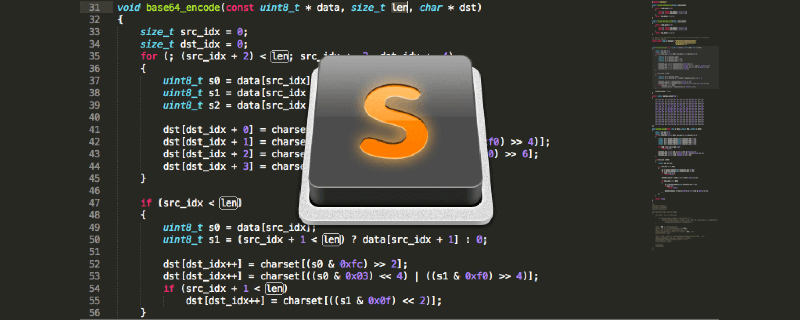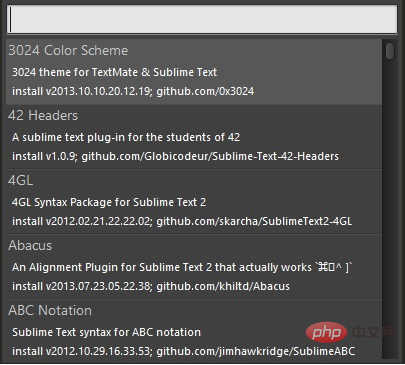
The following tutorial column of sublime will introduce to you the method of Sublime Text3 to configure automatic association of python. I hope it will be helpful to friends in need!

1. Install Package Control
import urllib.request,os; pf = 'Package Control.sublime-package'; ipp = sublime.installed_packages_path(); urllib.request.install_opener( urllib.request.build_opener( urllib.request.ProxyHandler()) ); open(os.path.join(ipp, pf), 'wb').write(urllib.request.urlopen( 'http://sublime.wbond.net/' + pf.replace(' ','%20')).read())
2. How to install the plug-in using Package Control

3. Add to preferences => package setting => package contrl => setting - user

4. Select the Settings-Default option and search for python_interpreter
5. Modify the configuration
Select the Settings-Users option and type in the following json data. Save and restart ST3.
{
"python_interpreter": "C:/Python27/python.exe",
"suppress_word_completions":true,
"suppress_explicit_completions":true,
"complete_parameters":true,
}Next, when you write python code using sublime, there will be a prompt function.
The above is the detailed content of How to configure Sublime Text3 to automatically associate python. For more information, please follow other related articles on the PHP Chinese website!




